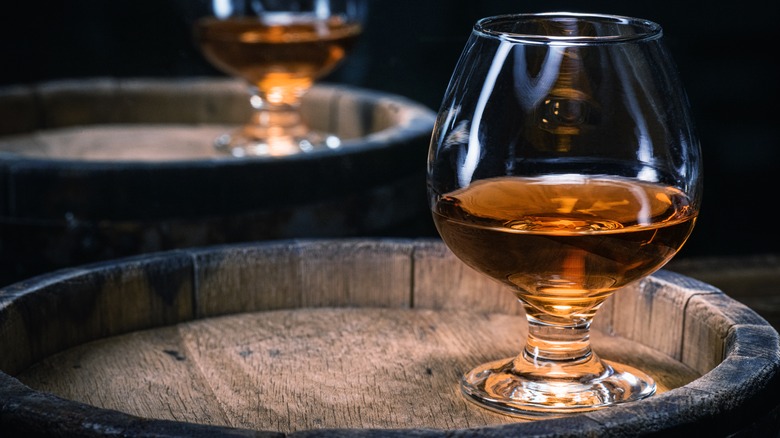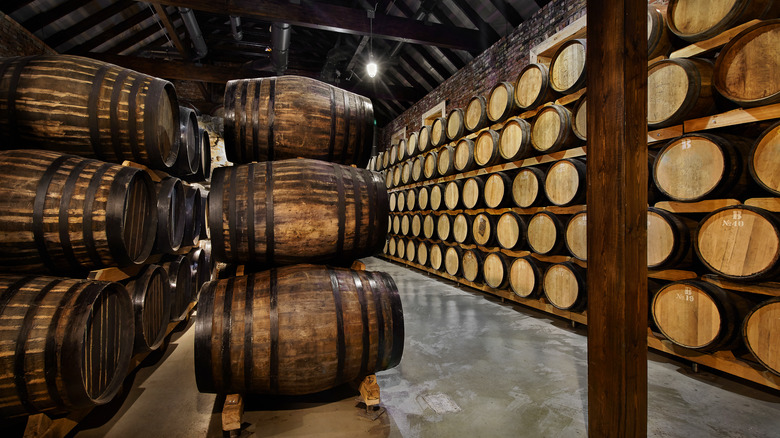Here's How Brandy Was Accidentally Invented
A distilled spirit produced from wine or fermented fruit juice, brandy has seen a recent bounce back in popularity in America. A 2017 article in The New York Times chronicled its rise, citing that more than 13 million cases of the liquor were sold nationwide in 2016.
Punch, a publication that explores drinks and drinking culture, has described the recent resurgence of interest in brandy as more of a "return to history" — noting that in colonial America, brandy made from fruit was all the rage. Prohibition hit the industry hard, and when whiskey became the most affordable option in the early 20th century, brandy became an afterthought.
Brandy may now be back on brown liquor consumers' radars, but aficionados might be interested to learn that they have a happy accident to thank for its mere existence. Its origins date back to the 16th century when Dutch shipping merchants were transporting wine to far-flung places around the globe and ran into a problem that required a practical solution.
Just remove water
Wine was shipped in wooden casks, and cargo space was limited, so to achieve maximum value on the trade of the item, the Dutch began removing water from the wine using stills to allow for more product to be sent. The Dutch labeled this liquid brandewijn, which translates to "burnt wine," a reference to the heat used during distillation. This method of extracting water also saved money since wine taxes were levied by volume.
The idea was that water would be added back to the wine later upon arrival at its destination. Except that the Dutch traders were greeted with a surprise when they opened the casks after the long journey at sea. What was once wine had further fermented and been transformed into a new more potent beverage that met with taste test approval. The world would come to know it as brandy, a name derived from brandywine and the aforementioned Dutch word brandewijn.
Today, brandy can be made from fruits such as apricots, grapes, apples, and cherries. They are usually aged in wooden casks–purposefully this time around — just like those first inadvertent Dutch batches. Proost!

